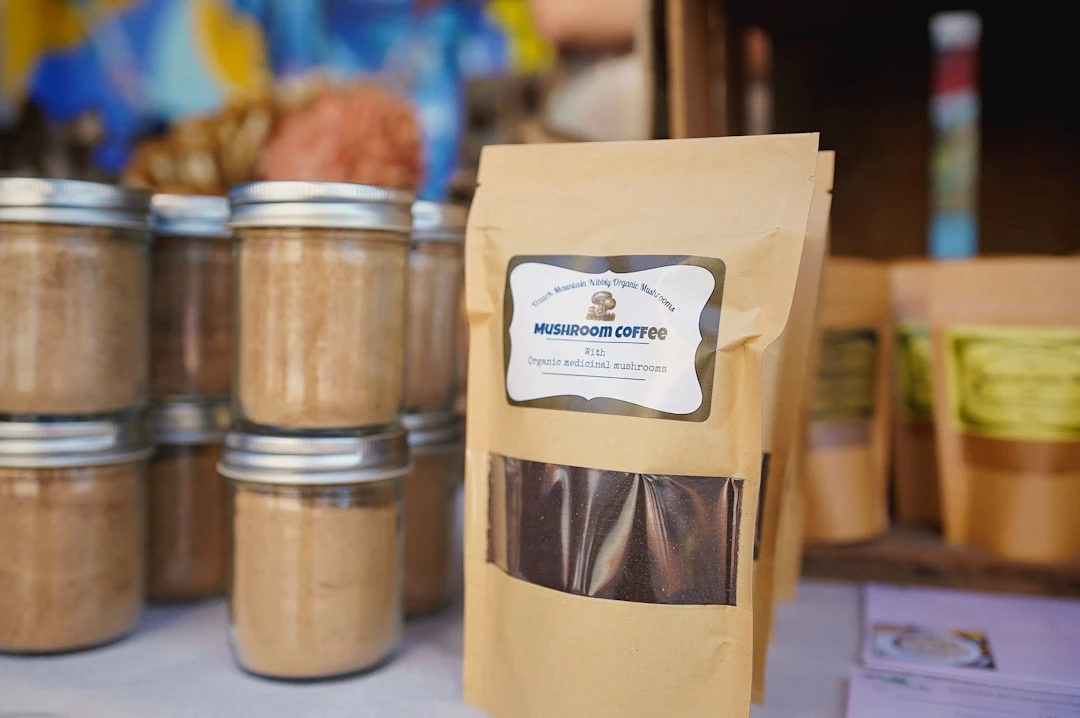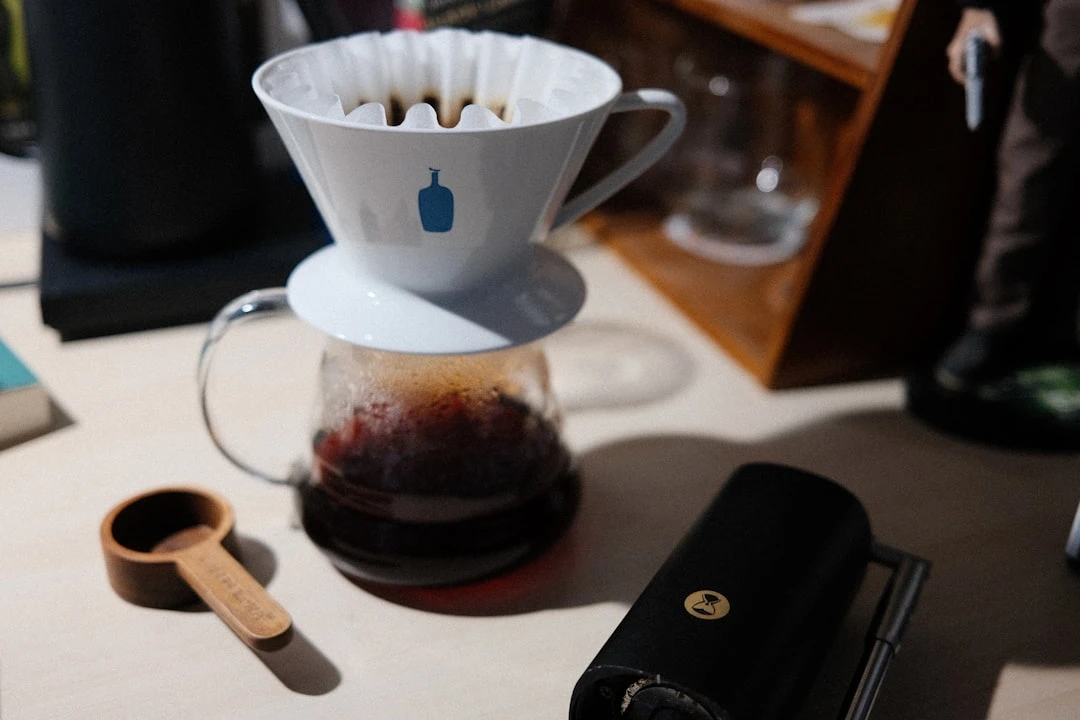Mushroom Coffee: Health Benefits and Side Effects Explained

Mushroom Coffee: A Different Kind of Brew
Imagine your morning coffee, but with a twist—infused with extracts from mushrooms like lion’s mane, chaga, reishi, or cordyceps. It’s not just plain grounds anymore; there’s a dash of powdered or liquid mushroom mixed in, giving it a distinct flavor and maybe even a health boost. Lately, more people are trading their usual cup for this blend, especially if they’re after something gentler on caffeine but with extra perks.
For centuries, medicinal mushrooms have been staples in places like China and Eastern Europe, celebrated for things like soothing stress or supporting immunity. These days, mushroom coffee either blends extracts straight into your brew or skips the caffeine altogether for something more herbal. As for taste? Picture earthy, a little nutty, or just smoother than your average dark roast.
Fans rave about the steady energy—no jitters, no sudden crash. Some mushrooms, like lion’s mane, might even help with focus, while chaga and reishi pack a punch of antioxidants. But let’s be honest, science is still figuring out how much of this really sticks.
If you’re into wellness trends or just tired of the same old coffee routine, why not try it? Later, we’ll break down the details—the good, the not-so-good, everything—to help you decide if it’s worth a sip.
What is Mushroom Coffee Made Of?
It’s your usual cup—whether you brew it from grounds or stir in instant—but with a whisper of something extra. Functional mushroom extracts blend right in, subtle as a shadow. And no, it doesn’t taste like digging up roots in the woods. There’s just this quiet, earthy hum beneath the coffee, softening its edges.
What’s in it?
Coffee – Arabica or Robusta, usually. That familiar buzz, though some blends skip the caffeine if you’d rather glide than jolt.
Mushroom extracts – Dried, powdered, simmered down to their essence. The usual lineup:
- Reishi – Eases the mind, steadies your defenses.
- Lion’s Mane – Nourishes the brain, those tangled nerves.
- Chaga – Brimming with antioxidants, like a slow-burning ember.
- Cordyceps – Claims to nudge stamina—handy when the afternoon sags.
Sometimes they’ll toss in other things—ashwagandha for balance, MCT oil for smooth energy, maybe a hint of sweetness to tie it all together.
The caffeine’s gentler here, but it still lifts you. Just with this quiet undercurrent, something almost like moss after rain. The extracts dissolve completely—no grit, only warmth sliding down easy.
If coffee’s been just fuel to you, try this. It’s like someone left the door ajar, and the forest slipped in.
Potential Health Benefits of Mushroom Coffee
Mushroom coffee mixes your regular cup with extracts from fungi—think chaga, lion’s mane. Sounds a little out there, sure, but people aren’t just sipping it for the novelty. Turns out, the whispers about its benefits might hold some truth.
Antioxidant Powerhouse
Those medicinal mushrooms? Packed with antioxidants, the kind that tackle inflammation and oxidative stress. Add coffee to the mix, and suddenly you’ve got a one-two punch against free radicals.
Immunity Sidekick
Reishi, turkey tail—they’ve been propping up immune systems for centuries. Beta-glucans in these fungi act like little bodyguards, helping your defenses stay on their toes.
Brain Fuel
Lion’s mane isn’t just a quirky name. It’s tied to protecting brain cells and even encouraging nerve growth. Think sharper focus, smoother recall—minus the usual caffeine jitters.
Zen Energy
Cordyceps and reishi are adaptogens, meaning they help your body handle stress without buckling. No wild spikes, no crashes—just a steadier hum of energy.
Happy Gut, Happy Life
Chaga’s like a welcome mat for your gut bacteria, feeding the good stuff. Better digestion, better absorption, maybe even a brighter mood. Hard to argue with that.
It’s not a miracle brew, but there’s enough promise here to make it worth a try. If you’re the kind of person who tweaks little things for big wellness wins, why not? At the very least, you’ll have a good conversation starter.
Nutritional Profile of Mushroom Coffee
Mushroom coffee mixes your regular cup with extracts from healing fungi—adding a quiet little nutritional twist. It’s light, barely 5 to 10 calories a cup, but the real magic? Things like antioxidants and adaptogens, not your run-of-the-mill vitamins.
The mushrooms they toss in—stuff like Lion’s Mane, Chaga, Reishi, or Cordyceps—bring beta-glucans, ergothioneine, triterpenes to the table. These tiny power players can bolster your immune system, ease inflammation, and maybe even clear some brain fog. But since the mushroom dose is usually pretty small (often just matching or trailing the coffee), what you get depends on the brand.
Here’s what the fungi do best:
- Beta-glucans: Shields your immune system and keeps your gut happy.
- Ergothioneine: A quiet powerhouse, guarding your cells like a watchful sentinel.
- Triterpenes (looking at you, Reishi): Soothes inflammation and gives your liver a little love.
- Hericenones & Erinacines (Lion’s Mane’s pride and joy): Might nudge your brain forward by helping nerves grow.
And yeah, there’s still caffeine—just a bit less than your usual cup, around 50 to 100 mg instead of the standard 95. Some brands toss in extras, like vitamin D or B, depending on the blend.
Don’t expect protein, fiber, or a vitamin jackpot here. The real win? Those adaptogens and antioxidants, turning it into more of a slow, thoughtful wellness sip than a nutrient bomb. Just peek at the label—see what’s really in your cup.
Possible Side Effects and Considerations
Mushroom coffee might seem like a wellness miracle, but let’s be honest—it’s not all smooth sailing. Here’s what you should consider before taking the plunge.
First things first, your stomach might need some time to adjust. Some people experience bloating or a touch of nausea, especially with potent varieties like chaga, lion’s mane, or reishi. If you’re new to these, take it easy—start with a small dose and build up slowly.
And if you’re on medication, keep an eye out. Reishi can interfere with blood clotting, so it’s not the best choice if you’re already on thinners. Chaga might rev up your immune system, which could be tricky if you have an autoimmune condition. Pregnant or breastfeeding? Better safe than sorry—check with your doctor first.
Even though it’s gentler on caffeine than regular coffee, those with a sensitive system might still feel a bit wired.
Oh—and quality matters. Not every brand delivers the real deal. Some skimp with cheap fillers or weak extracts. Look for the good stuff: organic, transparently labeled, and ideally dual-extracted for the full benefits.
Bottom line? A little awareness goes a long way. Now you can decide whether mushroom coffee’s worth a try—or if you’d rather stick with what you know.
How Mushroom Coffee Compares to Regular Coffee
At first glance, mushroom coffee and regular coffee could almost pass for twins—until you take that first sip. The real differences? They’re tucked into the flavor, the way the caffeine hits you, and how your body responds.
Caffeine Showdown
Regular coffee doesn’t hold back—it packs anywhere from 95 to 200 mg of caffeine per cup, hitting fast and sharp. Perfect for a quick jolt, sure, but that crash later? Oof. Mushroom coffee takes it down a notch, sitting around 50–60 mg of caffeine, blended with things like chaga or lion’s mane. If caffeine usually leaves you jittery, this might be your smoother alternative.
Flavor Face-Off
Mushroom coffee tastes like a quiet morning in the forest—earthy, a little nutty, softer than the usual coffee bite. Some blends keep a hint of coffee to ground it, while others lean all the way into that herbal, woodsy thing.
Health Hacks
No denying it—regular coffee brings antioxidants and sharp focus to the table. But mushroom coffee? It’s got its own little secrets. Reishi murmurs about immunity, lion’s mane teases your brain, and overall, it tends to be easier on your stomach. Just keep in mind—research is still catching up here.
Stomach-Friendly?
If coffee usually leaves your gut in revolt, mushroom coffee might be the diplomat. Less acid, less chaos.
The Verdict
Want a gentler sip with some extra perks? Give mushroom coffee a shot. But if you’re all about that deep, electric buzz? Classic’s probably your match. Either way, the best pick is the one that works for you.
How to Choose and Prepare Mushroom Coffee
Mushroom coffee mixes your everyday cup with powdered medicinal mushrooms—adding a twist of earthy flavor and a boost of health perks. But finding the right one and brewing it just right? That’s where things get interesting.
Choosing Your Mushroom Coffee
- Read the Fine Print – Organic is best, if possible. Look for lion’s mane, chaga, reishi, or cordyceps. Skip anything with filler fluff or vague ingredients.
- Extraction Matters – Dual-extraction (water and alcohol) means your body actually gets the benefits. Don’t settle for shortcuts.
- Trustworthy Brands – Go with companies that test their stuff. Pretty packaging doesn’t mean much if the product’s a dud.
- Taste Before You Commit – Some blends are deep and woodsy, others mellow. If you’re sensitive, try a sample or scout reviews first.
Brewing It Right
- Play Around – Brew it like regular coffee: drip, French press, pour-over. Instant? Hot water and you’re done.
- Measure with Care – Start with 1-2 teaspoons per cup (or what the bag suggests). Tweak it stronger or lighter as you go.
- Flavor Tricks – A splash of oat milk, a pinch of cinnamon, or a little honey can soften any sharp edges.
- Take It Slow – Try a cup a day at first. See how it sits with you before making it a habit.
With the right blend and a little experimenting, mushroom coffee might just become your go-to—rich in taste and goodness.
Final Verdict: Is Mushroom Coffee Healthy?
The Good Stuff
Some people swear by it — say it keeps them calm, sharp, even helps fend off sniffles. Lion’s mane might give your brain a little boost, while chaga and reishi bring antioxidants and a touch of anti-inflammatory magic. And yeah, since it’s usually lighter on caffeine, it’s a gentler choice if regular coffee leaves you wired.
The Not-So-Good Stuff
Here’s the catch, though: the research hasn’t quite caught up. Most studies focus on mushroom extracts by themselves, not blended into coffee. And let’s be honest—that deep, woodsy flavor? It’s… something. Takes some getting used to. Oh, and fair warning: not all brands are legit. Some skimp on the mushrooms entirely.
The Verdict
Look, if you’re game to try something new, why not? Just don’t expect miracles. If your usual coffee does the trick, there’s no reason to switch. (And hey, if you’ve got health stuff to consider, maybe ask your doctor first.)
In the end, mushroom coffee is kind of interesting—but your morning ritual won’t crumble without it.
Related Articles

How Many Espresso Shots in a Day is Safe For Health?
Read More →
How Long Does Coffee Keep You Awake?
Read More →


